The instinct to protect our own is so ingrained in Black culture that it’s become a haven of toxicity instead of comfort. After the airing of Lifetime’s docuseries Surviving R. Kelly, social media and news outlets roared with condemning thoughts on the matter and, unfortunately, some defended him. This valid reaction does not attack the root of the cultural problem — silence on abuse in the Black home and community. This is not the first time R. (Robert) Kelly has been in the news about his alleged predatory sex escapades and accusations, but now through the brave testimonies of his victims, it seems as if we are ready to stop the cycle. Although sexual abuse hotlines saw a 20% uptick in calls, there are still many who have not spoken up because they were raised to be silent and carry on.
The documentary and an article on Ebony magazine’s website revealed that R. Kelly and his brother, Carey Kelly, were sexually abused (at ages 10 and 6) by their older sister and never spoke about it to their mother. The reason:
“I was afraid to tell my mom, because of the person, who they were. I-I [sic] didn’t know if she was gonna believe me, so I was afraid to tell her,” Carey Kelly explained on episode 1 of Surviving R.Kelly.
Imagine a young woman shuffling home terrified after a brutal sexual encounter with her uncle and while quivering she bravely tells her mother what happened. With a stoic restraint the mother hugs her and forces her daughter to forgive him and deny what happened to save the family name. This type of forced denial is not uncommon because it’s hard to believe that someone who is loved and respected could ever commit a heinous act.
“Robert, him being my big brother, I brought that to him and told-told [sic] him what happened to me. And when I told him what happened to me, um…he didn’t, he didn’t really respond to it like I felt that he should. When-when [sic] I told him, he said, ‘Nah, that didn’t happen, that didn’t happen to you.’ And I said, ‘Yes, it did,’” shared Carey Kelly on episode 1 of Surviving R. Kelly.
Carey continued to describe how he was trying to “test out” whether or not he should tell their mother and since his truth was negated he left it alone. When their sister began to molest R. Kelly, he too kept it quiet and allowed it to continue for years. Not being able to communicate your pain for the sake of your assailant’s reputation is a form of gaslighting and is a common practice in these circumstances.
After he rose to stardom, his trauma turned into a habit of conquering younger women so that he may no longer be a victim. According to clinical psychologist Dr. Candice Norcott, childhood sexual abuse translates into seeking power and control through sex. Kelly did this by embodying his nickname, “The Pied Piper,” and luring teenage girls into the studio with promises of their own fame or fame by association. His trauma and silence transformed him into a version of his assailant, where he had the illusion of power and total control over the situation.
On social media, men weighed in on how this was another attack like Bill Cosby’s allegations. Unfortunately, like Cosby, Kelly, too, is guilty, but that did not stop Rico Love from weighing in and defending Kelly’s legacy. Upon further reflection, Rico Love changed his mind. However, it brings to question, how many times must a harsh truth be told about someone who is admired before it is believed?
— Rico Love (@IamRicoLove) January 7, 2019
The Community of Silence
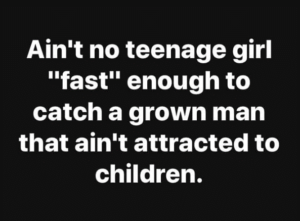 Kelly is ingrained in our culture and, for many millennials, part of our youth was memorizing the lyrics to “I Believe I Can Fly.” His dual power of celebrity and nostalgia served as a cloak to his wrongdoing during the first two uproars surrounding marriage to a 15-year-old Aaliyah and the infamous circulating tape that featured intercourse with a 14-year-old girl. Enablers of Kelly, such as his manager and bodyguard (featured in Surviving R. Kelly), turned a blind eye to his pedophilia due to their loyalty to friendship, fame, and legacy.
Kelly is ingrained in our culture and, for many millennials, part of our youth was memorizing the lyrics to “I Believe I Can Fly.” His dual power of celebrity and nostalgia served as a cloak to his wrongdoing during the first two uproars surrounding marriage to a 15-year-old Aaliyah and the infamous circulating tape that featured intercourse with a 14-year-old girl. Enablers of Kelly, such as his manager and bodyguard (featured in Surviving R. Kelly), turned a blind eye to his pedophilia due to their loyalty to friendship, fame, and legacy.
“The story of sexual predation as an inconvenience in popular music is so old. It’s been going on for decades, for centuries. Nobody wants to give up the music they love. And nobody wants to think badly of the artists they love,” said Ann Powers, music journalist, on Surviving R. Kelly.
Some in the Black community voice the distaste for their friend or relative’s abusive actions, yet do nothing because of their adoration or sympathy for the individual. By carrying on with a “no snitch” and “do you” culture paired with empathy for the root of a predator’s actions, we give passage to an unremorseful and relentless tirade of causing others the same pain they experienced. The loyalty to not destroying a community, family, or legacy is louder than the crime. And that is worse than the silence itself, contributing to untreated mental health issues, loss of faith, and possibly the secret dying with them.
In the era of the #MeToo and #TimesUp movements, forgiving and forgetting is slowly fading away. Women are awakening people blind to rape culture and toxicity of keeping “the little secret.” Youth and older women are emboldened to tell their stories in order to prevent future injustices for young women. Unfortunately, both men and women still shudder at coming forward because of the shame of allowing this to happen.
People were asked on the Whisper app if they had ever been sexually assaulted and why they did not speak up, these were some of the responses:
To err is human, to forgive is divine, but where is the line drawn?
Forgiveness is a staple of Christianity, however it could be to the detriment of someone’s mental state if justice is never served. The Kelly brothers were abused by their sister, but no one would believe them if they spoke up because she was a “good member of the community.” Even if they were believed, would she have been punished for her actions or excused under the law of the faith?
We need to stop allowing ‘the cloth’ to blind us from the reality of a person or situation. Community worship, having a relationship with God, and practicing the word of God are three very different components of Christianity. The assumption that someone is active in all three components because they hold a position in the church is asinine. The false anointing given to people who have a proprietary role within the community or church assist in the damage created when the abused are silenced and forced to forgive; sweeping away the mental and emotional turmoil that morphs the innocent into a person like R. Kelly. Therefore, without support and justice for the crime, the cycle continues.
#UnMuteUs
Is this our fault?
Yes.
We have celebrated R.Kelly for his musical genius and ignored his scandals, reducing them to jokes. Similar things happen in families where traumas are pushed aside or made into comic relief that masks their disappointment. It is not R.Kelly’s fault for the trauma he experienced, but it is not an excuse to torture young women because therapy was not considered.
If we are going to protect our youth, they need to be educated on how to advocate for their mental health and safety. We need them to understand that trauma can happen and there is help available to redefine their lives beyond it. We’ve seen the damage caused by someone who could not advocate for themselves.
To break the cycle let’s do something we’ve never done before… watch and listen.

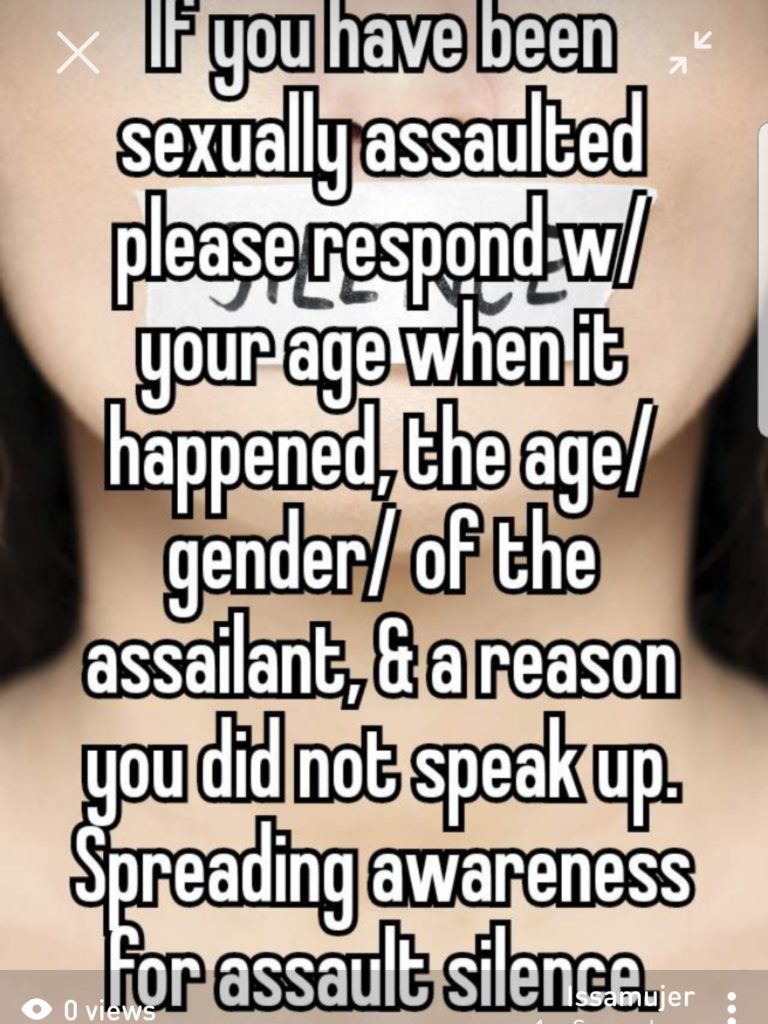
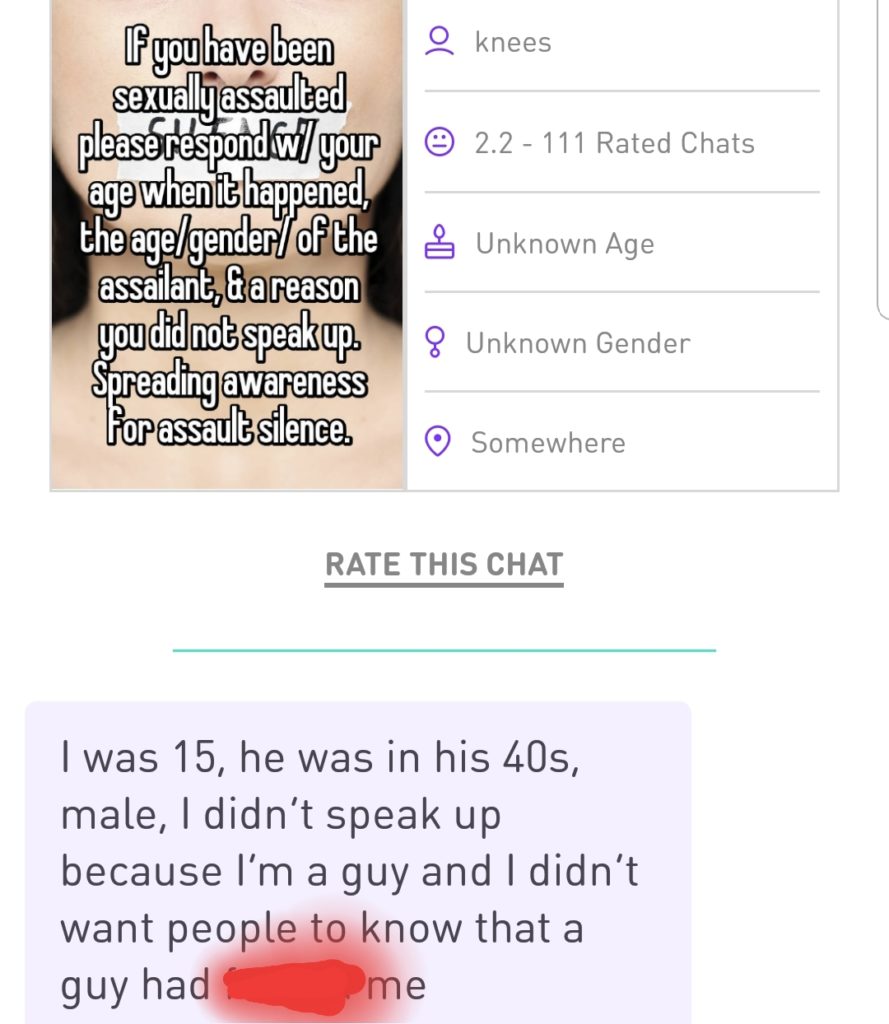
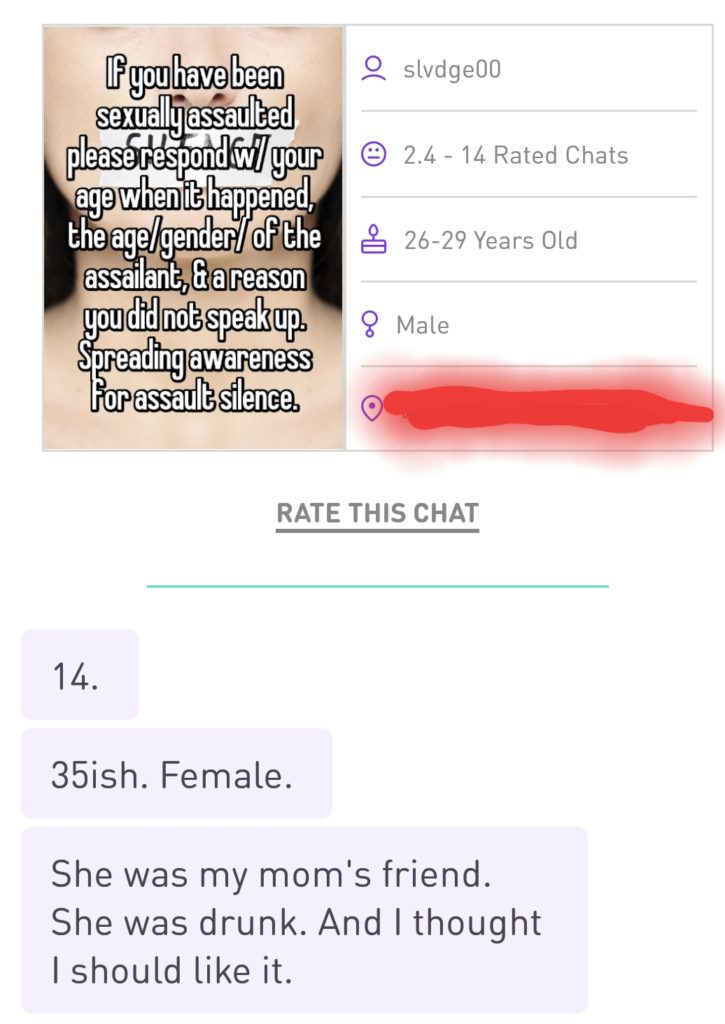
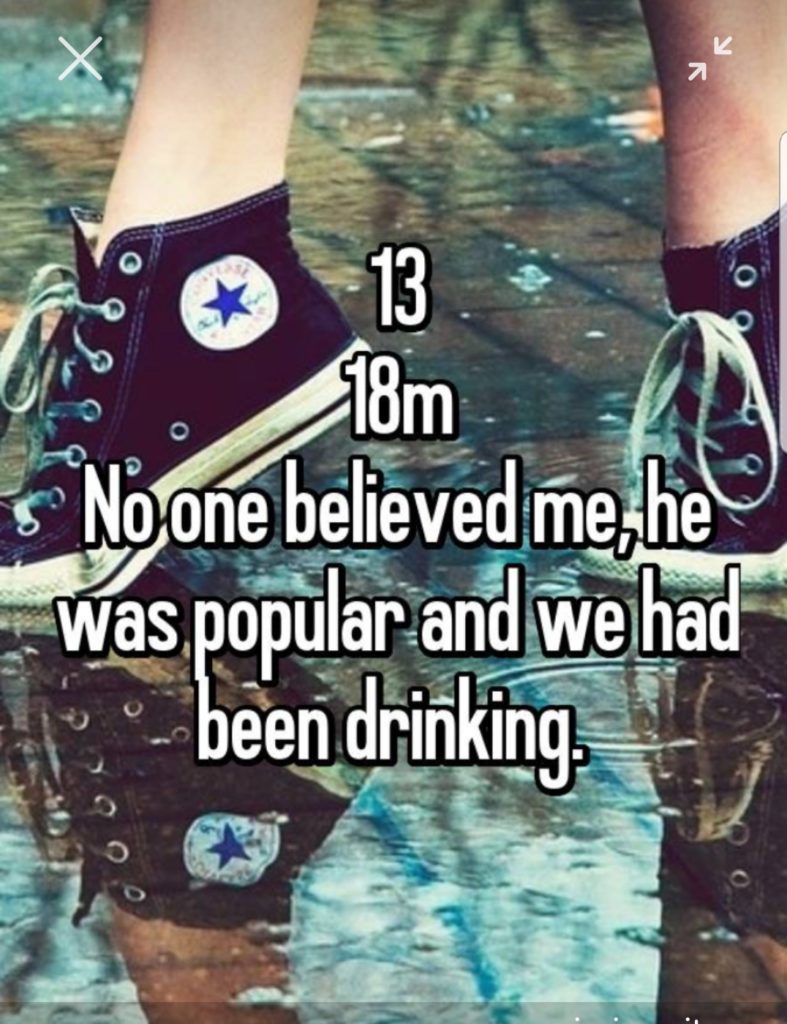
This is an excellent article that forces us to examine all the issues that occur
when we confront sexual predation in our families and communities.